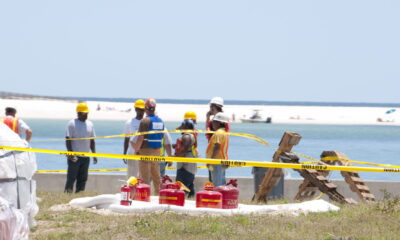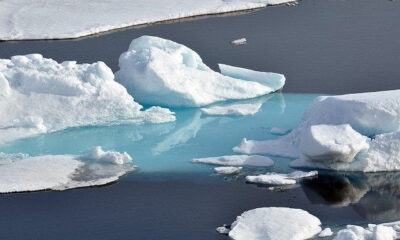

Energy
ExxonMobil’s Arctic ambitions threatened by sanctions on Russia
Oil giant ExxonMobil may have to put its controversial ambitions for operations in the Russian Arctic on ice because of the political situation in Ukraine, it has been revealed.
The firm currently plans to commence drilling for oil in the Kara Sea, north of Siberia, in August. These plans were only made possible thanks to its accord with the Russian state-owned oil company OAO Rosneft.
However, on Monday, Rosneft’s CEO Igor Sechin was added to the US sanctions list, as the crisis in Ukraine escalated.
“With Sechin being sanctioned it may complicate relations for Rosneft with Western companies”, Mattias Westman, who oversees about $3.3 billion in Russia assets as CEO of Prosperity Capital, told Bloomberg.
“Maybe some transactions will be threatened as a result and perhaps Russia will counter and they will be less keen for American companies to work on Arctic projects.”
ExxonMobil has refused to comment on the developments, while Rosneft insists that its “shareholders and partners, including those in America” will not be affected by the sanctions.
It is expected that other oil giants will also be affected by the sanction. BP owns an almost 20% stake in Rosneft.
ExxonMobil’s troubles are significant, but are only the latest in a long list of difficulties experienced by oil companies hoping to exploit the Arctic region.
These difficulties are perhaps best typified by the experiences of Royal Dutch Shell.
Since 2005, Shell has spent around $4.5 billion (£2.7 billion) exploring for oil off the Alaskan coast, but is yet to drill a single well.
In that time it has seen a drilling rig run aground and lost a federal court battle over the validity of its leases in the Chukchi Sea, all the while under pressure from campaigners and investors to end its Arctic ambitions.
The remote Kara Sea well, the first to be born of the Rosneft alliance, is expected to cost ExxonMobil some $600m (£357m). It could potentially deliver enough oil to fill 9 billion barrels, according to some estimates.
Environmental campaigners hold many concerns over the safety of Arctic oil drilling. Should an oil spill or marine disaster occur in such remote regions experts warn that response teams would have little hope of reaching the scene before considerable damage is done to the pristine Arctic environment.
Conservative MP and environmentalist journalist Zac Goldsmith is among those who say the pursuit for Arctic oil is “profoundly reckless”. He argues that oil companies are continuing to ignore the risk of oil spill despite warnings from recent history.
The infamous Exxon Valdez oil spill of 1989 occurred near US Arctic waters, but in conditions much more hospitable for response teams. An estimated 250,000 sea birds, 2,800 sea otters, 300 harbour seals, 22 killer whales and thousands of fish were still killed.
In 2013, Greenpeace activists protested against Russia’s first offshore Arctic oil rig and were subsequently held in Russian jails for 100 days. That rig launched its first shipment, albeit behind schedule, earlier this month.
Photo: Minale Tattersfield via Flickr
Further reading:
US unprepared for Arctic oil spill, study warns
‘Arctic 30’ oil rig in Russia launches first shipment
Russia and Shell’s dangerous liaison threaten the Arctic region
ExxonMobil remains convinced that the world needs fossil fuels – despite climate risks
ExxonMobil in landmark agreement to report climate risk after investor resolution


 Environment12 months ago
Environment12 months agoAre Polymer Banknotes: an Eco-Friendly Trend or a Groundswell?

 Features11 months ago
Features11 months agoEco-Friendly Cryptocurrencies: Sustainable Investment Choices

 Features12 months ago
Features12 months agoEco-Friendly Crypto Traders Must Find the Right Exchange

 Energy11 months ago
Energy11 months agoThe Growing Role of Solar Panels in Ireland’s Energy Future




























